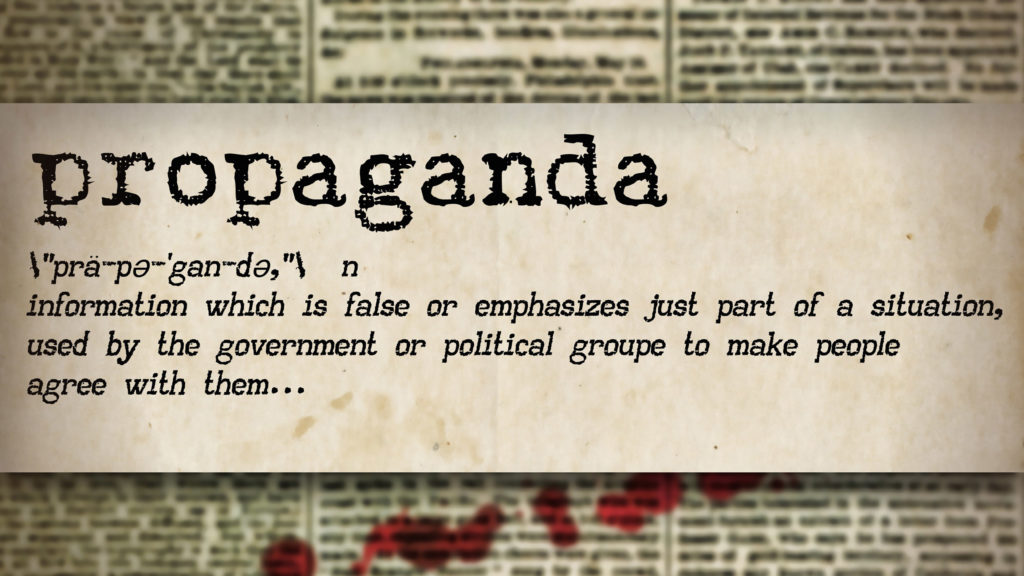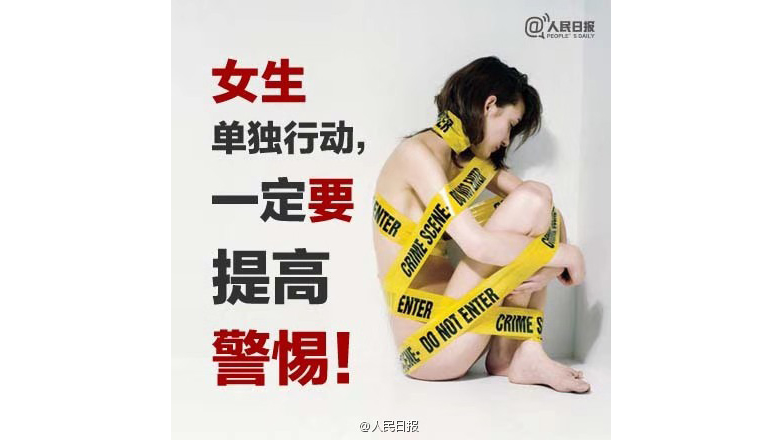When sexual assault and harassment were revealed frequently and received unprecedented attention on the internet, why is there so little relevant coverage in traditional media in China?
It’s 4.30pm and time for the editorial meeting on the Daily Jinhua, the newspaper for mid-Zhejiang province in China. Top of the agenda is how to cover a severe sexual assault that took place two days ago. For journalist Guodong Ni, it’s imperative to talk to the families of the victim and accused, but his editor is having none of it.
However, for commissioning editor Rui Xu, this story needs to focus on something more positive: the quick respond of the emergency services and how social workers help the victim recover from her pain. It’s a decision that has less to do with editorial values and more to do with how the government wants journalists to report on these issues.
Actually, issues like this are common in Chinese newsrooms. So, what is stopping them from doing their job? According to Guodong Ni, “Since the media is closely connected with the government, it’s also a part of the overall governance of society, we have to consider how we want to make this society more harmonious.” He adds, “After working as a journalist here many years, I have become accustomed to weighing the risks of a story first, rather than the newsworthiness of it.”
There is no doubt that the government is the biggest influence on the decisions that Chinese journalists make. As a mainstream newspaper, Daily Jinhua functions as the mouthpiece of the Chinese government. That is to say, the news production of the editorial department must be examined and approved by the Propaganda Department of the Party Committee and the relevant government authorities. As a result, the news idea of the newspaper must follow the guidance of the ruling party, which is “sticking to the principle of unity, stability, encouragement and positive publicity”.
Hence, “spreading active views and amplifying positive energy” has been repeatedly emphasised as the most important value of the news in the weekly review meeting in Daily Jinhua. Qingyun Fang, the chief editor, often use “Warm News”, “touching story”, “human warmth” as keywords to identify a good piece of news. In his view, sex crimes are inherently dramatic, and would easily cause controversy as well as arouse emotions, which is not a good news topic for Daily Jinhua.

Moreover, the police are the primary source of journalists, and they also have their own internal censorship to decide whether they should provide information about a case to the press. Normally, sexual crime won’t be released because it has a bad influence on the image of a city. As a result, there would only be a little relevant coverage in traditional media in China.
In rare instances, the police would reach out initiatively to the media, but journalists are not allowed to report the sexual crime independently, the editorial decisions are being taken away from journalists by the police. “The police station sent us the press release written by their publicity department, which was the main content of our report in the newspaper, we couldn’t really change anything because they would audit our draft,” said crime reporter Liming Zhang.
For example, there was once a string of rapes taken place in the city, rumours that the attacker was targeting women wearing red had been spread widely by media bloggers online. However, when women are frightened by such terrifying sexual crime reporting on the internet, they can’t find the truth or useful legal information from the traditional mainstream newspapers in time. Rather than reporting the facts of the crime, police wanted journalists to focus on dispelling this rumour and more importantly, reminding people to take precautions.
Specifically, those precautions would include two respects. The first one is some safety rules that women should follow. For instance, “don’t wear too little”, “don’t get in strangers’ cars” and “don’t go out at late night”. Secondly, there would also be some skills women need to learn to protect their personal safety if they are in such a situation. For example, “how to quietly send a distress message”, and “how to deal with the criminals wisely”.
The intention of such reporting is to warn women about the potential dangers. Some journalists reckon that’s the only appropriate way to report sexual crimes. “I personally don’t think it’s suitable to give too much coverage to sexual crimes towards women, unless you make it a cautionary message, otherwise it would be too vulgar,” said Liming Zhang.

Many people had warned that those self-protection guidelines for women require women to make unreasonable sacrifices to avoid sex crimes, which would enhance the tendency to blame the victim of sexual crimes. Pin Lu, a social worker towards women’s rights, criticized, “This is a gender bias, it ignores the low level of violence intervention in China, and the lack of resources to help female victims, which prevent more people from realizing that the true and effective way to deal with sexual violence is studying how to stop the perpetrator.”
However, these opponents like seems to have little influence on the way journalists and editors make editorial decisions under the censorship of the government. Sometimes, women campaigners may even face a crackdown. For instance, “Feminist Voices”, a feminist media that promotes and popularises public awareness towards gender equality through the internet, released an article to introduce an online anti-harassment campaign that called on people to post their own anti-sexual harassment manifesto on social media during women’s day in 2018.
Soon after that, this China’s largest feminist online group with 180,000 followers was banned permanently by both WeChat and Weibo, two of the most popular social media platforms in China because it “posted sensitive information about violations” and “violated the network security law of the People’s Republic of China”.
Under such circumstance of the sensitisation of feminist issues, the discussion and activity space of women’s rights issues have been tightened continuously until they are silenced. So, how to actually change the way people think about rape? Some people reckon that the mainstream media still should take the main responsibility through reporting sexual crimes correctly and ethically.
Although the current mainstream media industry is generally faced with the issue of shrinking circulation, decreasing advertising, low efficiency and other issues. From the perspective of getting authoritative information, the traditional media still has a considerable advantage in resources. “No matter how complex the situation, the attitude of readers and audiences is more inclined to the newspaper,” said Qingyun Fang.

That is to say, the traditional media need to play an essential role in offering ethical sexual crime reporting. As for the way to communicate with the police and the government, the approach of Southern Metropolis Daily may offer some practical experiences that other media institutions can also use for reference. According to journalist Sunlin Wu, they may sometimes reinterpret some policies or rules to circumvent certain restrictions and create a space for delivering public service journalism driven by a clear interest in the area they report on. “Sometimes they tell us that one of our sexual crime reporting is not allowed to be reported because it’s too sensitive and would cause unnecessary trouble, we would still report it,” said Sunlin Wu.
Indeed, reporting the sexual crime in this way would cause some trouble with local administrative departments, Sunlin Wu believes that such conflicts with local administrative departments are meaningful. He explains, “We want to release that article to show the government the fact that such news needs to be reported, it does no harm to society, making them wonder if their management needs some changes.”
In this guidance, Southern Metropolis Daily keeps breaking the reporting taboos, releasing aggressive reports on the dark side of society and officials. According to Sunlin Wu, the real in-depth reports only lie in the concern for the public interest, if it’s only a personal affair, that’s not news. He adds, “We prefer to focus on the investigation of the underlying reasons behind these sexual crimes, we want to gain the attention of relevant authorities, so perpetrators could be punished justly and timely, the legitimate rights of the vulnerable groups could be protected.
In fact, some people don’t even consider strict censorship as the main reason for the poor quality of sexual crimes reporting in the newspaper. From their perspective, with more control over the media, journalists still have lots of things they can try to in order to write in-depth reporting on sexual crime as long as they go to the crime scene. According to Jianhui Xu, a journalist who used to run the legal news column at Daily Jinhua, the real problem is not the police wouldn’t let you report, the problem is that many young journalists are unwilling to put efforts and negotiate with the police.
“The police want to control the public opinion, but you have to be able to give them a more positive impression, I just come to report, I will not cause trouble, if you keep telling them that, I am sure you can win the trust of the police, there is no place will definitely refuse you to get inside,” explains Jianhui Xu, “Press releases provided by correspondents from the police breed journalists’ inertia, they just prefer to simply copy a press release and put their names on it.”
Indeed, news teams and correspondents of government departments seem to have become important sources of current media coverages. Nevertheless, according to Qingyun Fang, journalists and editors should screen and select materials coming from press releases even if they come from authority. “The newsworthiness and readability of news need to be enhanced, journalists can’t just copy official documents, they should fully listen to the opinions of all parties with an impartial attitude and do not endorse or draw conclusions based on a one-sided story, because only in-depth interviews can make the news,” said Qingyun Fang.
In addition to what the government and journalists need to do, there are also some voices mentioning the necessity for the public to change their attitudes towards sexual crime. Xiaoli Tai, an associate professor of journalism at the Communication University of Zhejiang, argued that the influence of traditional Chinese idea has rooted in people’s mind for thousands of years, there’s no way journalists on their own could change the way people think about rape. “In fact, a large number of audiences of newspaper can accept that kind of report, the way they think is very traditional, so they think it’s ok to write those things on the paper, they think women should do exactly like that, that’s the real problem,” said Xiaoli Tai.
However, changing social concepts is a process of “a rising tide raises all boats”. That’s an old saying in China, which means when one thing gets better, another thing will get better with it. According to Kecheng Fang, a PhD Communication researcher at the University of Pennsylvania, “In the era of social media in which everyone can make their voices, if the media coverage could be more responsible, it would exert a positive influence on public attitudes, which may make the society a better place for the victims of sexual crimes as well as women.”

